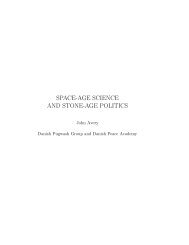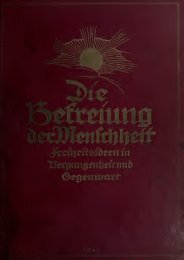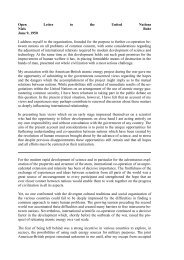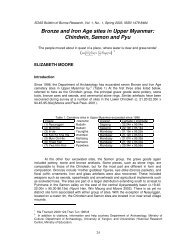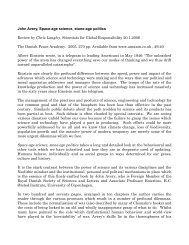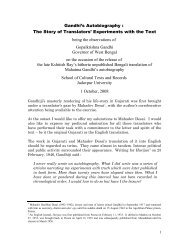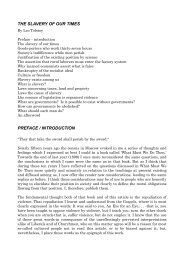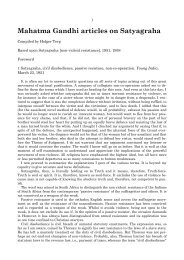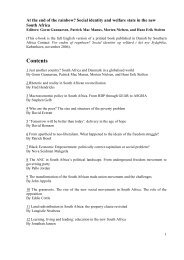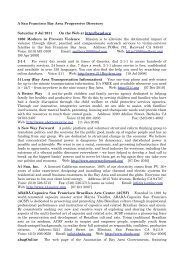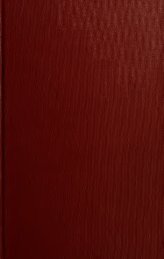Untitled
Untitled
Untitled
Create successful ePaper yourself
Turn your PDF publications into a flip-book with our unique Google optimized e-Paper software.
14 U. S. AND EXPANSION OF LAW BETWEEN NATIONS<br />
the need of reducing an enemy nation by starvation, she had no<br />
right of doing<br />
September 3, 1793, the British Admiralty issued an order<br />
"that freight and reasonable expenses" should be allowed "to<br />
it at the loss of the United States.<br />
all masters of neutral ships. . . . Provided always,<br />
that no mala fides" should appear. The order went on to say,<br />
"Demurrage shall be allowed, and considered as a reasonable<br />
expense, only in cases where the ship shall be pronounced to have<br />
been unjustly seized and brought in for adjudication," or when<br />
the captured vessel was unfairly held. 15<br />
On the 6th<br />
applied<br />
of November, 1793, the British Government<br />
the rule of the War of 1756 16 to the trade between<br />
France and her colonies by an Order in Council that was published<br />
December 23d, following. It instructed the commanders<br />
of British war vessels or privateers to capture and seize "all<br />
ships laden with the produce of any colony belonging to France,"<br />
or that carried provisions or supplies to any French colony. 17<br />
This order, of course, was equivalent to stopping all trade<br />
by neutral nations with the colonies of France, and neutrals<br />
in this case meant practically the United States. 18<br />
It aroused<br />
much feeling among the American people towards Great<br />
Britain. 19<br />
Meanwhile, Edmund Randolph, who had succeeded Jefferson<br />
as Secretary of State, had addressed on May 1st, to the<br />
British Minister at Philadelphia, Mr. Hammond, a long and<br />
learned despatch protesting against the interference of Great<br />
"Ibid., p. 315.<br />
"Henry Wheaton (edited by Richard Henry Dana): Elements of International<br />
Law, Boston, 1866, p. 666; Theodore Dwight Woolsey: Introduction<br />
to the Study of International Law, New York, 1883, Fifth Edition, p. 349.<br />
John Westlake : International Law, Part II, War, Cambridge University Press,<br />
1907, pp. 254-255; James Madison, Examination of the British Doctrine<br />
Which Subjects to Capture a Neutral Trade Not Open in Time of Peace,<br />
1806, see Letters and other Writings, Philadelphia, 1865, p. 229.<br />
"American State Papers, Foreign Relations, Washington, 1833, p. 430.<br />
"James Madison: A Memoir Containing an Examination of the British<br />
Doctrine Which Subjects to Capture a Neutral Trade Not Open in Time of<br />
Peace, in "Letters and Other Writings," Philadelphia, 1865, Vol. II, p. 310.<br />
"Richard Hildreth: History of the United States of America, New<br />
York, 1882, Vol. IV, pp. 481, 482.



